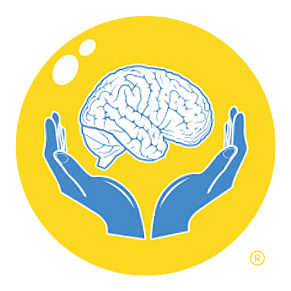How Meditation Transforms Your Brain: A Neuroscientific Perspective
Blog:How Meditation Transforms Your Brain: A Neuroscientific Perspective

How Meditation Transforms Your Brain: A Neuroscientific Perspective
In recent years, meditation has gained widespread popularity for mental well-being and stress reduction. But beyond the subjective benefits reported by practitioners, what does science say about how meditation affects the brain? At A Ray of Hope, our practice specializes in both neurology and psychiatry, allowing us to understand and explain the profound effects of meditation on the brain. In this blog, we'll delve into the neuroscientific mechanisms of meditation, focusing on its impact on key brain regions like the frontal lobe and the amygdala.
The Neuroscience of Meditation
Meditation, a practice with ancient roots, has been shown through modern science to induce significant changes in brain structure and function. Neuroscientists have used various imaging techniques, such as functional MRI (fMRI) and electroencephalography (EEG), to study the brains of meditators, revealing fascinating insights.
Meditation and the Frontal Lobe
The frontal lobe, particularly the prefrontal cortex (PFC), is crucial for higher-order cognitive functions such as decision-making, attention, and self-control. Studies have shown that regular meditation can enhance the activity and density of gray matter in the PFC.
1. Enhanced Attention and Focus
Meditation practices like mindfulness and focused attention increase the thickness of the prefrontal cortex. This leads to improved attention, better focus, and enhanced executive functions. For instance, a study by Sara W. Lazar and colleagues found that meditators had increased cortical thickness in brain regions associated with attention and sensory processing.
2. Improved Emotional Regulation
The PFC is also involved in regulating emotions. By strengthening the connectivity between the PFC and other brain regions, meditation helps in better emotional regulation. This can reduce symptoms of anxiety and depression, promoting overall mental well-being.
Meditation and the Amygdala
The amygdala is the brain's emotional center, responsible for processing fear, stress, and other emotional responses. Chronic stress can lead to an overactive amygdala, resulting in heightened anxiety and emotional reactivity.
1. Reduced Amygdala Activity
Meditation has been found to reduce the size and activity of the amygdala. A study by Gaëlle Desbordes and colleagues observed that participants who engaged in an 8-week mindfulness-based stress reduction program showed decreased amygdala activation in response to stress.
2. Stress Reduction
By calming the amygdala, meditation helps reduce the body's stress response. This not only improves mental health but also has positive effects on physical health, such as lowering blood pressure and reducing inflammation.
Meditation and the Hippocampus
The hippocampus plays a critical role in memory formation and emotional regulation. It is particularly vulnerable to stress, which can impair its function.
1. Increased Hippocampal Volume
Research has shown that meditation can increase the volume of gray matter in the hippocampus. This enhancement is linked to improved memory and learning capabilities. Additionally, a healthier hippocampus contributes to better emotional regulation, countering the effects of stress and depression.
Meditation and Brain Connectivity
Meditation also promotes increased connectivity between different brain regions. This enhanced connectivity is crucial for integrating cognitive and emotional processes.
1. Default Mode Network (DMN)
The default mode network (DMN) is active when the mind is at rest and not focused on the external environment. Overactivity of the DMN is associated with mind-wandering and self-referential thoughts, which can lead to anxiety and depression. Meditation decreases DMN activity, promoting a state of present-moment awareness and reducing rumination.
2. Improved Neural Plasticity
Regular meditation enhances neural plasticity, the brain's ability to reorganize itself by forming new neural connections. This adaptability is essential for learning new skills, recovering from brain injuries, and maintaining overall cognitive health.
Conclusion
Meditation is more than just a relaxation technique; it is a powerful tool for reshaping the brain. By affecting key regions like the frontal lobe, amygdala, and hippocampus, meditation enhances attention, emotional regulation, and stress resilience. The neuroscientific evidence supports the profound impact of meditation on mental and physical health, making it a valuable practice for anyone seeking to improve their well-being.
If you're interested in harnessing the transformative power of meditation, consider integrating it into your daily routine. The benefits are not just in the mind but are deeply rooted in the very structure of the brain itself.
Ready to experience the benefits of meditation for yourself? At A Ray of Hope, we are committed to providing comprehensive, compassionate care that includes the best of both traditional and complementary therapies. We offer guidance to see if meditation mindfulness training is right for you. Contact us today at (847)-816-6335 to start your journey toward better brain health and emotional well-being.




